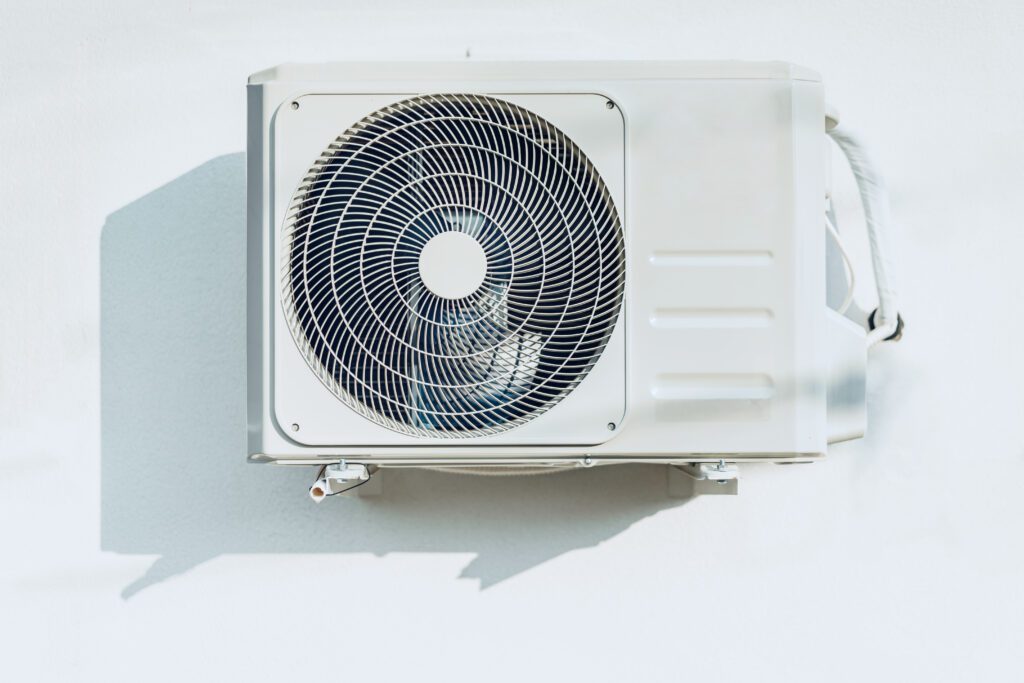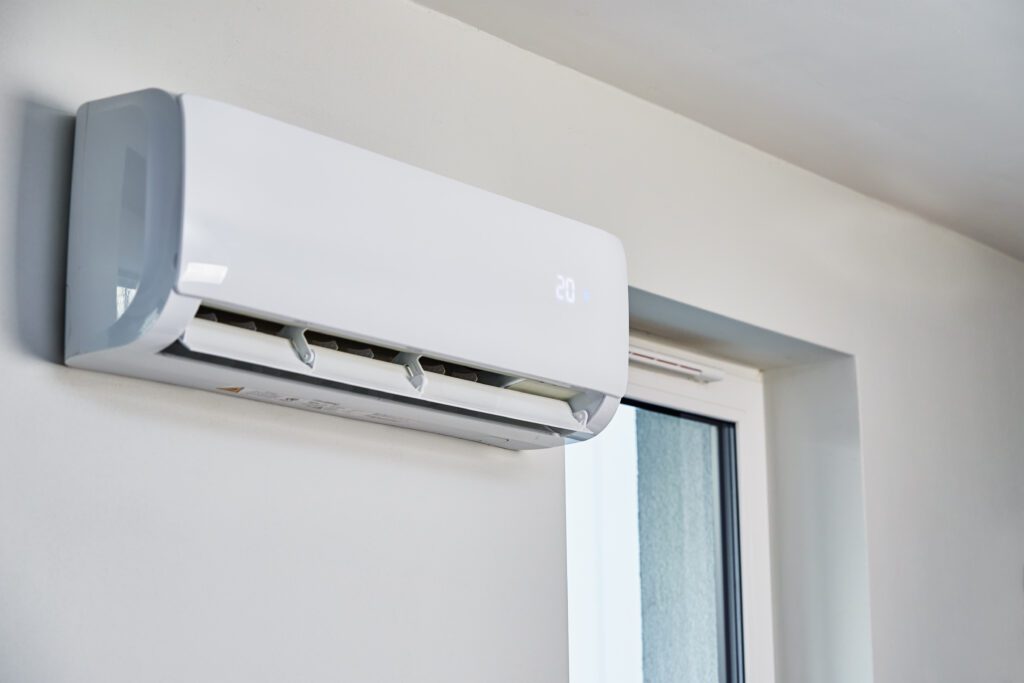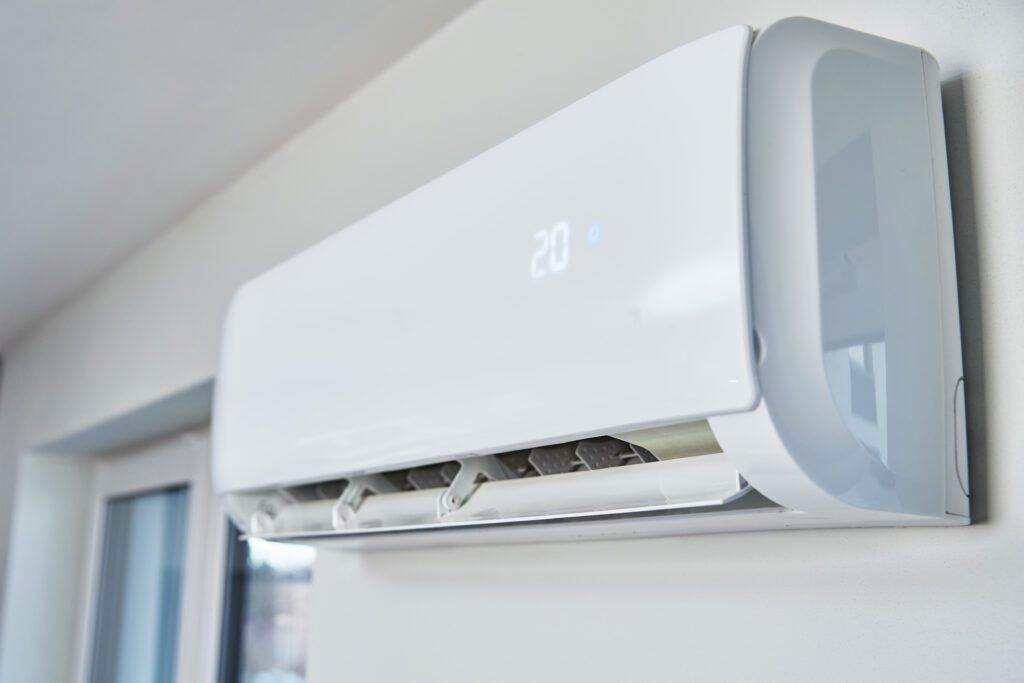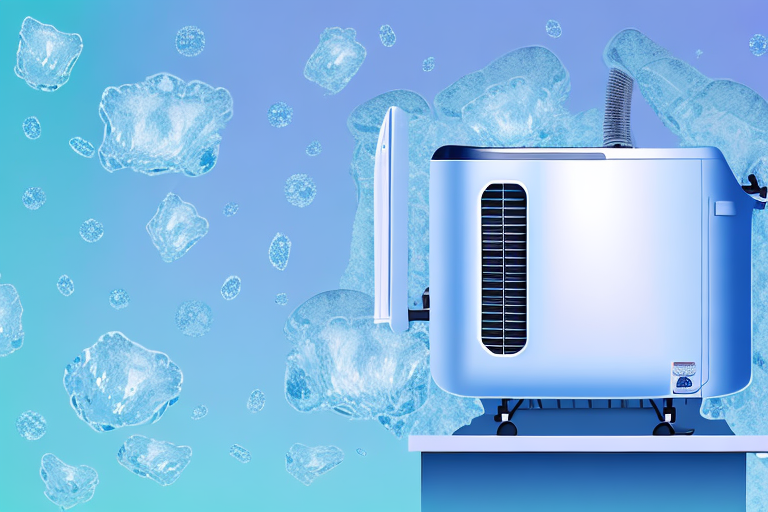If you find that your air conditioner is frozen, it is important to take immediate action to prevent further damage to your unit. Understanding the causes of a frozen air conditioner can help you address the issue effectively and efficiently. Here, we will explore the role of refrigerant in cooling systems, the impact of airflow on air conditioner function, and the effects of temperature settings on AC units.
Understanding the Causes of a Frozen Air Conditioner
The Role of Refrigerant in Cooling Systems
Refrigerant is a crucial component in air conditioning systems. It circulates through the AC unit, absorbing heat from the indoor air and releasing it outside. This process allows the air conditioner to cool the room effectively and maintain a comfortable temperature. However, if the refrigerant levels are low due to leakage or other issues, it can cause the evaporator coil to freeze, hindering proper cooling.
When the refrigerant levels are insufficient, the evaporator coil does not receive enough heat to warm it up. As a result, the temperature of the coil drops below freezing, causing the moisture in the air to freeze on its surface. This ice formation restricts airflow and reduces the cooling efficiency of the air conditioner.
Impact of Airflow on Air Conditioner Function
Adequate airflow is essential for the smooth operation of your air conditioner. When the airflow is restricted, it can lead to various issues, including a frozen air conditioner. There are several factors that can hinder proper airflow, such as dirty air filters, closed vents, or blocked evaporator coils.
Dirty air filters can accumulate dust, dirt, and debris over time, reducing the amount of air that can pass through them. As a result, the air conditioner has to work harder to push the air through the clogged filters, leading to a decrease in cooling efficiency. Closed vents in the room can also restrict the airflow, preventing the cool air from reaching all areas of the space. Additionally, blocked evaporator coils can impede the flow of air, causing the moisture in the air to condense on the coils and eventually freeze.
Temperature Settings and Their Effects on AC Units
The temperature setting on your thermostat plays a significant role in the performance of your air conditioner. Setting the thermostat too low can cause the air conditioner to freeze. When the temperature is too low, the evaporator coil becomes excessively cold, increasing the likelihood of ice formation.
It is important to find the optimal temperature that balances comfort and efficient cooling. Setting the thermostat at a moderate temperature allows the air conditioner to cool the room without overworking itself. This helps prevent the evaporator coil from freezing and ensures that the air conditioner operates smoothly and effectively.
Signs Your Air Conditioner is Frozen

Physical Indications of a Frozen AC Unit
One of the most noticeable signs of a frozen air conditioner is ice or frost on the unit. You may observe ice forming on the evaporator coil or on the refrigerant lines. In some cases, the ice can extend to other components of the AC system.
When ice or frost accumulates on the evaporator coil, it can restrict the flow of air through the coil. This can lead to reduced cooling efficiency and an increase in energy consumption. As the ice continues to build up, it can also cause the coil to become completely blocked, preventing any airflow altogether.
Furthermore, the presence of ice on the refrigerant lines can cause them to become cold to the touch. This can be a dangerous situation, as touching these frozen lines can result in frostbite or other injuries. It is important to exercise caution and avoid direct contact with any frozen components of your air conditioner.
Performance Issues Signaling a Frozen Air Conditioner
A frozen air conditioner may exhibit certain performance issues. These include reduced airflow, weak cooling, or warm air blowing from the vents. You may also notice an increase in humidity levels indoors. If you experience any of these problems, it is crucial to address the freezing issue promptly.
Reduced airflow can occur when the ice buildup restricts the movement of air through the system. This can result in rooms feeling stuffy and uncomfortable, as the air conditioner struggles to distribute cool air effectively. Additionally, weak cooling and warm air blowing from the vents can be indicative of a frozen air conditioner, as the ice prevents the proper cooling process from taking place.
Moreover, the increase in humidity levels indoors can be a result of the frozen air conditioner not effectively removing moisture from the air. As the ice forms on the evaporator coil, it hinders the coil’s ability to dehumidify the air passing through it. This can lead to a muggy and uncomfortable indoor environment, even when the air conditioner is running.
Immediate Steps to Unfreeze Your Air Conditioner

Turning Off Your Air Conditioner
If you suspect that your air conditioner is frozen, the first step is to turn off the unit. This will prevent further damage and give the ice a chance to melt. It is important to wait until the ice has completely melted before attempting any repairs or restarting the AC system.
Adjusting Your Thermostat
To speed up the thawing process, adjust your thermostat to a higher temperature. This will help raise the temperature of the evaporator coil and facilitate the melting of the ice. Be patient and wait for the ice to melt thoroughly.
Checking and Changing Your Filters
Dirty or clogged air filters can restrict airflow and contribute to AC freezing. Check your air filters and clean or replace them if necessary. Regularly maintaining clean filters will not only prevent freezing but also improve the overall performance and energy efficiency of your air conditioner.
While waiting for the ice to melt, it is a good idea to inspect the area around your air conditioner for any signs of water leakage. A frozen air conditioner can sometimes cause water to accumulate and leak, which can lead to water damage if not addressed promptly. Look for any water stains or puddles near the unit and take note of their location.
In addition to turning off your air conditioner, it is also recommended to turn off the fan setting on your thermostat. This will help prevent the circulation of cold air, allowing the ice to melt more effectively. By eliminating the cold air circulation, you are giving your air conditioner the best chance to defrost and resume normal operation.
Long-Term Solutions to Prevent Air Conditioner Freezing

Regular Maintenance and Cleaning
To prevent future occurrences of air conditioner freezing, it is important to schedule regular maintenance and cleaning. Hire a professional technician to inspect your unit, check refrigerant levels, clean the coils, and lubricate the necessary components. Regular maintenance will ensure optimal performance and reduce the risk of freezing.
Proper Use of Your Air Conditioner
Proper usage of your air conditioner can also help prevent freezing. Avoid setting the thermostat too low, as this can cause the evaporator coil to become excessively cold. Additionally, ensure that all vents are open and unobstructed to maintain adequate airflow throughout your home.
When to Seek Professional Help
If you have followed the aforementioned steps and your air conditioner continues to freeze, it is advisable to seek professional help. An experienced HVAC technician can diagnose the underlying issue, repair any faults, and ensure that your air conditioning system operates efficiently and reliably.Remember, taking prompt action and addressing the causes of air conditioner freezing can help you unfreeze your unit quickly and avoid further complications. By understanding the role of refrigerant, airflow, and temperature settings, as well as implementing proper maintenance and long-term solutions, you can enjoy uninterrupted cooling during the hot summer months.



